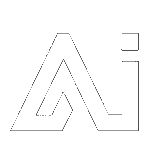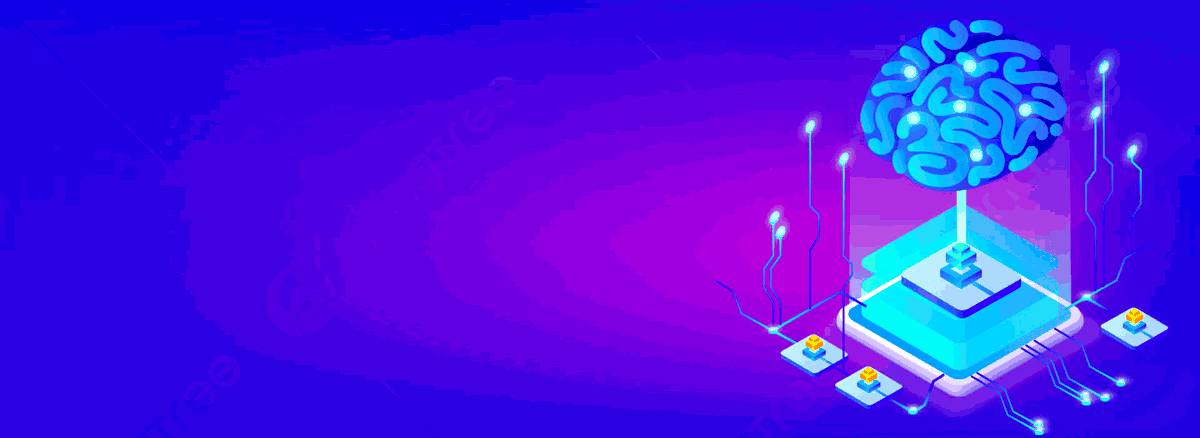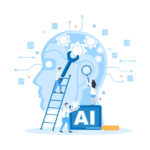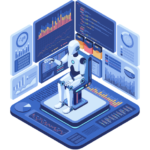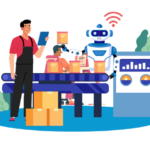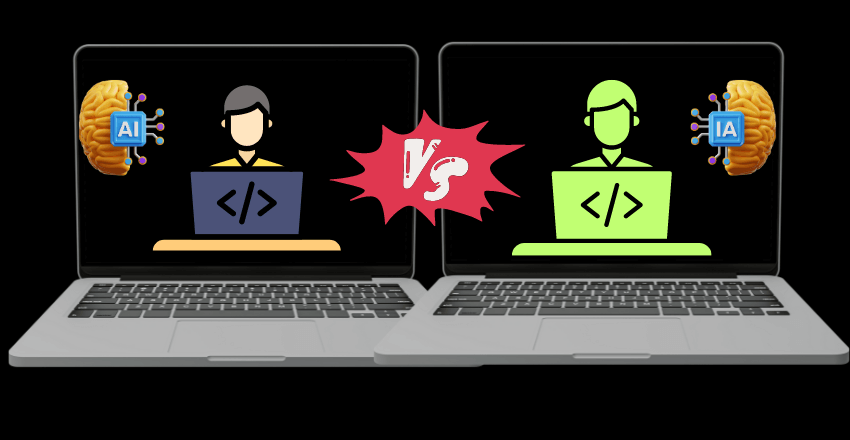 As the realm of Artificial Intelligence (AI) continues to evolve, so do the roles and responsibilities of those involved in AI development. Two key positions that are important to distinguish are the Artificial Intelligence Developer and the Artificial Intelligence Engineer.
As the realm of Artificial Intelligence (AI) continues to evolve, so do the roles and responsibilities of those involved in AI development. Two key positions that are important to distinguish are the Artificial Intelligence Developer and the Artificial Intelligence Engineer.
While both are working towards the common goal of creating intelligent systems, their roles and skillsets are different and require varying levels of expertise and experience.
An AI Developer typically focuses on creating the software and applications that enable machines to perform tasks such as language processing, problem-solving, and decision making.
On the other hand, an AI Engineer deals with designing and implementing the infrastructure and architecture that allows these systems to function seamlessly.
It is important to clarify the differences between the two positions and understand their unique roles in AI development.
Key Takeaways:
- An AI Developer focuses on creating software and applications for intelligent systems, while an AI Engineer deals with designing and implementing their infrastructure and architecture.
- AI Developer and Engineer roles require different skillsets and levels of experience.
- Career paths in AI development include positions like AI Software Engineer and AI App Developer.
Understanding Artificial Intelligence Development
Artificial Intelligence (AI) development involves the creation and implementation of advanced technology that simulates human cognitive functions.
This technology is designed to improve efficiency, reduce costs, and enhance decision-making in various industries. AI development encompasses a wide range of technologies, including machine learning, natural language processing, and computer vision, among others.
The applications of AI systems are vast and continue to grow. From healthcare to finance to manufacturing and transportation, AI systems are being widely implemented to improve processes, provide insights, and create new products and services.
As such, the demand for skilled AI professionals continues to rise, making AI development an exciting and lucrative career path.
AI development is an ever-evolving field, with new breakthroughs and technologies emerging regularly. As such, staying up-to-date with the latest trends and advancements is critical for those pursuing a career in AI development.
Role of an Artificial Intelligence Developer
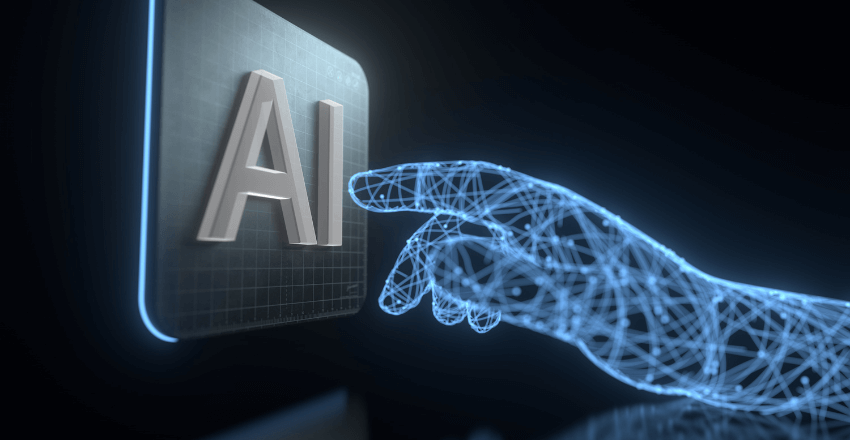
The Artificial Intelligence (AI) Developer is responsible for the design, development, and maintenance of AI-enabled systems. They work closely with stakeholders to identify business needs and develop AI solutions that meet those needs. The AI Developer is typically involved in all stages of the development process, from ideation to deployment.
AI Developers are responsible for programming and coding the intelligence of AI systems. They use programming languages, such as Python, C++, and Java, and development tools like TensorFlow and PyTorch, to create algorithms and models that enable AI systems to learn and make decisions based on data. In addition, AI Developers are responsible for developing and implementing testing procedures to ensure the accuracy and efficiency of AI systems.
The AI Developer works closely with a team of developers, engineers, and data scientists to develop models and systems that can interpret, analyze, and learn from large datasets.
They must have a strong understanding of AI programming and research, as well as a background in mathematics and statistics. AI Developers must be able to work well in a team environment and communicate effectively with stakeholders.
Skills Required for Artificial Intelligence Developers
Artificial Intelligence (AI) Developers are responsible for creating software applications that use machine learning algorithms and natural language processing to analyze data and make predictions. To excel in this field, AI Developers must possess a unique blend of technical and creative skills.
Programming Languages for AI
One of the most important skills for an AI Developer is proficiency in programming languages commonly used in AI development. These include:
| Programming Language | Primary Use |
|---|---|
| Python | Machine Learning and Natural Language Processing |
| R | Statistics and Data Visualization |
| Java | Enterprise Software Development |
| C++ | Image and Video Processing |
AI Developers must have a deep understanding of these programming languages and their associated libraries and frameworks.
Machine Learning Expertise
AI Developers must be familiar with machine learning concepts and techniques, including supervised and unsupervised learning, decision trees, and neural networks. They must also have experience with data preparation and cleaning, as well as model evaluation and selection.
Affinity for Algorithms
AI Developers must have a strong affinity for algorithms and optimization techniques. They must be able to develop and implement algorithms that are effective in solving complex problems.
Ability to Work with Large Datasets
AI Developers must be able to work with large and complex datasets, as well as understand data structures and data modeling. They must have experience with data visualization tools and techniques, and be able to communicate findings and recommendations to non-technical stakeholders.
AI development is a highly specialized field that demands a diverse set of technical and creative skills. AI Developers must be proficient in programming languages commonly used in AI, possess machine learning expertise, and have an affinity for algorithms and optimization techniques.
They must also be able to work with large and complex datasets, and possess strong communication skills to effectively collaborate with other stakeholders in an AI development project.
Artificial Intelligence Engineer: Roles and Responsibilities

Artificial Intelligence (AI) Engineers are responsible for designing and developing AI systems that can perform tasks that typically require human intelligence. Their role involves creating and implementing algorithms, data modeling, and system architecture to build efficient and effective AI-enabled systems.
AI Engineers must have a comprehensive understanding of machine learning, neural networks, and deep learning, as well as expertise in programming languages such as Python, Java, and C++.
They work closely with AI Developers to ensure that the system design meets the project requirements, and contribute to the overall development process by providing technical guidance and collaborating with project stakeholders.
| AI Engineer Responsibilities: |
|---|
| Create and implement algorithms for AI applications |
| Develop AI system architecture and data modeling |
| Collaborate with AI Developers and project stakeholders |
| Ensure the system design meets project requirements |
AI Engineers must also possess strong analytical and problem-solving skills, as well as the ability to work with large datasets. They play a critical role in ensuring the accuracy and reliability of AI systems by testing and troubleshooting the system as needed.
Overall, the AI Engineer role is crucial to the successful development and implementation of AI technology in various industries, including healthcare, finance, and transportation.
Their expertise and skills in AI system design and development are in high demand, making it a promising career path for individuals interested in the field of AI development.
Required Skills for Artificial Intelligence Engineers
AI Engineers are responsible for designing and developing AI systems, and therefore require a strong technical skillset. In addition to a solid understanding of software engineering principles, AI Engineers should also possess deep learning expertise and experience with neural networks.
Proficiency in programming languages commonly used in AI development such as Python, Java, and R, is also essential for an AI Engineer. They should be proficient in algorithms and have experience with optimization techniques.
AI Engineers must also have a strong understanding of system architecture and data modeling, as they play a vital role in designing and developing AI systems. A deep understanding of statistical analysis and mathematical modeling is also important in this field.
As the field of AI continues to evolve at a rapid pace, AI Engineers must be willing to stay up-to-date with the latest developments in the industry and continuously learn new skills. Strong communication skills are also crucial, as AI Engineers often work in teams with other professionals.
Overall, the role of an AI Engineer requires a high level of technical expertise, deep understanding of AI technologies, and a willingness to continuously learn and adapt to new developments in the industry.
Differences between Artificial Intelligence Developer and Engineer
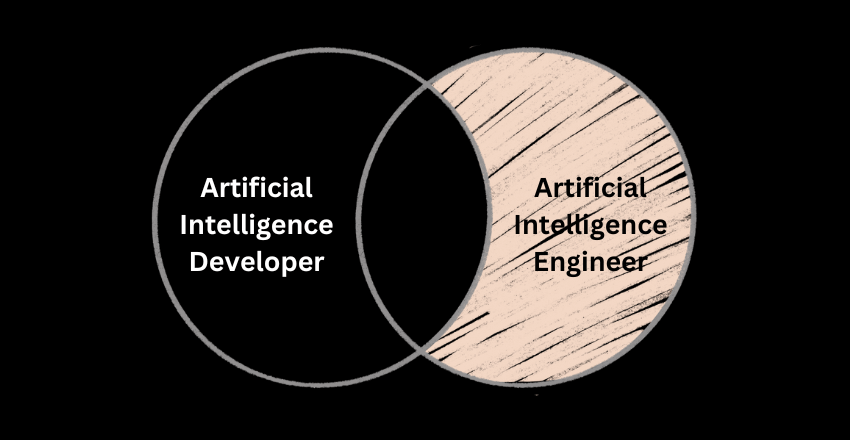
While AI Developers and AI Engineers both work towards the common goal of creating AI-enabled systems, their roles and responsibilities differ significantly.
An AI Developer focuses on programming and developing applications that utilize AI technology. They work with machine learning algorithms, natural language processing, and big data to create intelligent systems that can solve complex problems.
In contrast, an AI Engineer is responsible for designing and developing the underlying infrastructure and architecture of an AI system. They must consider factors such as scalability, data modeling, and system optimization to ensure that the AI system can perform efficiently and effectively.
The skills required for each position also vary. An AI Developer should have proficiency in programming languages such as Python, Java, and R. They should also have a deep understanding of algorithms and machine learning techniques.
On the other hand, an AI Engineer should have experience with deep learning frameworks such as TensorFlow and Keras. They should also have knowledge of neural networks and the ability to design system architecture.
The roles of AI Developer and AI Engineer also differ in terms of their involvement in the AI development process. While an AI Developer focuses primarily on programming and application development, an AI Engineer is involved in the entire AI development lifecycle, from ideation to deployment.
Overall, while AI Developers and AI Engineers share some similarities, their roles and responsibilities are distinct. Understanding the differences between AI development and AI engineering is crucial for organizations seeking to implement AI systems and hire the right professionals for the job.
Collaborative Efforts: AI Developer and Engineer Synergy
Collaboration between AI Developers and Engineers is crucial for the successful development of AI systems. Both roles bring unique skills and expertise to the table, and their synergy can lead to efficient team dynamics and high-quality project outcomes.
AI development involves a complex process that requires teamwork and collaboration to achieve optimal results. AI Developers focus on coding and programming, while AI Engineers are responsible for system architecture and data modeling. By working together, they can ensure that the AI system is designed and developed in a way that aligns with the project goals and meets the needs of the end-users.
Effective collaboration between AI Developers and Engineers requires clear communication, mutual respect, and a shared understanding of the project objectives. It is important for both parties to recognize the value of each other’s contributions and work together to overcome obstacles and challenges that may arise throughout the development process.
In addition, successful collaboration between AI Developers and Engineers can lead to continued innovation and advancement in the field of AI development. By combining their skills and expertise, they can push the boundaries of what is possible and create AI systems that are even more sophisticated and intelligent than before.
Overall, the collaboration between AI Developers and Engineers is essential for the successful development of AI systems. By working together effectively, they can ensure that the AI system meets the highest standards of quality and performance, while also fostering an environment of innovation and growth.
Career Paths in Artificial Intelligence Development
The field of artificial intelligence (AI) development offers a variety of career paths for individuals interested in this rapidly growing industry. Some of the most common positions in AI development include:
- AI Software Engineer
- AI App Developer
- Machine Learning Engineer
- Data Scientist
- AI Researcher
Each of these positions requires a unique set of skills and qualifications, but they all share a common focus on AI development and implementation. AI Software Engineers and AI App Developers are responsible for designing and building AI-enabled software and applications, while Machine Learning Engineers and Data Scientists focus on developing and implementing machine learning algorithms. AI Researchers play a key role in advancing the field of AI through ongoing research and development.
The demand for skilled professionals in AI development is rapidly growing, with job opportunities available in a wide range of industries.
From healthcare to finance to transportation, AI is being applied in innovative ways to improve processes, increase efficiency, and enhance overall performance. For individuals interested in exploring the exciting and dynamic field of AI development, there are many opportunities for growth and advancement.
Training and Education for AI Development
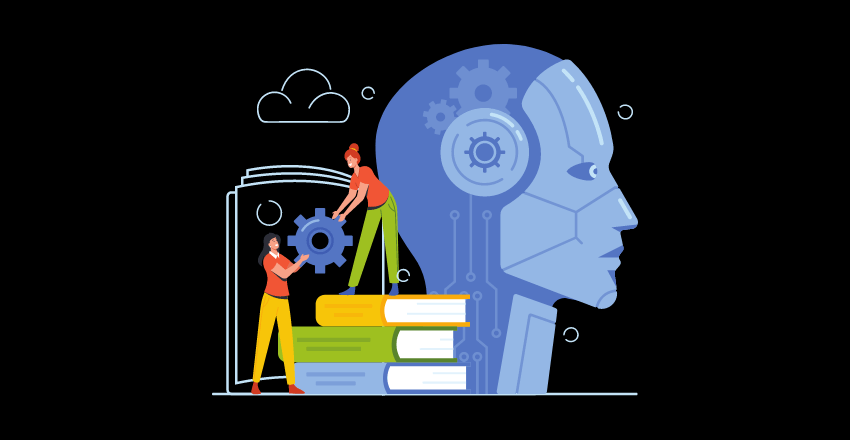
Artificial Intelligence is a rapidly evolving field that requires a solid foundation of knowledge and skills. Whether you are interested in pursuing a career as an AI Developer or an AI Engineer, there are various training and education options available to help you develop the necessary expertise.
AI Development Education
Many universities now offer degree programs in AI development, such as Computer Science with a specialization in AI or Applied Mathematics with a concentration in machine learning. These programs typically cover topics such as programming languages, algorithms, and data modeling, as well as specific applications of AI in various industries. Additionally, online courses and bootcamps are available for individuals looking to gain practical skills in AI programming and development.
AI Engineering Courses
For those interested in pursuing a career as an AI Engineer, courses in computer science and software engineering are typically required. Specializations in machine learning, data science, and computer vision can also provide valuable knowledge and skills. Additionally, certification programs such as the AWS Certified Machine Learning – Specialty or the Microsoft Certified: Azure AI Engineer Associate can help demonstrate proficiency in AI engineering.
When it comes to AI development, staying up-to-date with the latest technology and techniques is crucial. Whether through formal education or self-directed learning, investing in your AI development skills can open up a world of career opportunities.
Industry Applications of Artificial Intelligence
Artificial intelligence is transforming various industries, enabling businesses to make smarter, data-driven decisions. AI technology is making an impact in healthcare, finance, manufacturing, transportation, and many other sectors.
Healthcare
AI is revolutionizing the healthcare industry, providing enhanced patient care and improved outcomes. AI-enabled solutions are being used for disease diagnosis, treatment planning, drug development, and more. For instance, AI-powered chatbots can help patients to assess their symptoms and provide personalized healthcare recommendations.
Finance
The financial sector is leveraging AI for risk management, fraud detection, customer service, and more. AI algorithms can analyze large amounts of data to identify suspicious activities and trigger alerts, enabling banks to prevent fraudulent transactions. AI-powered chatbots are also being used to enhance customer service by providing quick and accurate responses to inquiries.
Manufacturing
AI is transforming the manufacturing industry, enabling companies to optimize their production processes, reduce costs, and improve product quality. AI-powered tools can analyze data from various sources to predict machine failures, identify defects, and optimize production schedules. This results in reduced downtime and improved efficiency.
Transportation
Transportation is another sector benefiting from AI technology. Autonomous vehicles, for example, are being developed to reduce human error and improve safety on the roads. AI-powered solutions are also being used for traffic management, reducing congestion and improving transit times.
The adoption of AI technology is growing rapidly across various industries, and the potential applications are limitless. As AI continues to evolve, we can expect to see more industries embracing its benefits and reaping the rewards.
Hiring AI Developers and Engineers

The field of Artificial Intelligence (AI) development is rapidly expanding, leading to increased demand for skilled professionals in this area. Hiring the right AI Developer or Engineer is essential for the success of any AI project. Here are some insights and tips for organizations looking to hire skilled AI professionals:
Hiring for AI Developer and AI Engineer Roles
When hiring for AI Developer and Engineer roles, it is important to assess candidates based on their technical skills, including programming languages, machine learning expertise, and experience with neural networks. Additionally, soft skills such as communication, teamwork, and problem-solving are essential for successful collaboration and project outcomes.
Recruiting Strategies
In a highly competitive job market, organizations need to adopt effective recruitment strategies to attract top AI talent. Some effective strategies include networking events, social media outreach, and partnering with educational institutions to identify and engage with potential candidates.
Attracting and Retaining Top Talent
Organizations need to offer competitive salaries, benefits, and clear career development paths to attract and retain top AI talent. Additionally, offering opportunities for skill development and training can help employees stay up-to-date with the latest AI technologies and remain engaged in their work.
By adopting effective recruitment and retention strategies, organizations can hire and retain skilled AI Developers and Engineers, ensuring the success of their AI projects.
Conclusion
Artificial Intelligence (AI) development is a rapidly evolving field, with both AI Developers and AI Engineers playing crucial roles. Although there are differences in their responsibilities and skill sets, collaboration between these professionals is essential for successful AI projects.
The demand for skilled AI professionals is growing across various industries, making it a promising career path with ample opportunities for growth. As AI technology continues to advance, there is no doubt that it will play an increasingly significant role in shaping our world.
AI development offers a world of opportunity for professionals seeking a challenging and rewarding career. As the field continues to grow, it is important to stay up-to-date with the latest trends and advancements in order to remain competitive and succeed in this exciting industry.
External Resources
FAQ

Q: What is the difference between an AI Developer and an AI Engineer?
A: An AI Developer focuses on creating AI-enabled applications and software, while an AI Engineer specializes in designing and developing AI systems and infrastructure.
Q: What are the roles and responsibilities of an AI Developer?
A: An AI Developer is responsible for coding and programming AI applications, integrating machine learning algorithms, and working with large datasets to create intelligent systems.
Q: What skills are required for Artificial Intelligence Developers?
A: AI Developers should have proficiency in programming languages such as Python and Java, as well as expertise in machine learning concepts, data analysis, and problem-solving.
Q: What is the role of an AI Engineer?
A: An AI Engineer is responsible for designing and developing the architecture and infrastructure of AI systems, implementing algorithms, and optimizing performance for AI applications.
Q: What skills are necessary for Artificial Intelligence Engineers?
A: AI Engineers should possess deep learning expertise, knowledge of neural networks, and familiarity with algorithms and optimization techniques for AI system design and development.
Q: What are the key differences between an AI Developer and an AI Engineer?
A: AI Developers focus on application development and programming, while AI Engineers specialize in system design and optimization. Their roles, responsibilities, and required skills differ accordingly.
Q: How do AI Developers and AI Engineers collaborate?
A: AI Developers and AI Engineers work together in a collaborative environment to combine their skills and expertise, contributing to efficient team dynamics and the successful development of AI systems.
Q: What are the career paths in Artificial Intelligence Development?
A: Career paths in AI development include positions such as AI Software Engineer and AI App Developer, with various opportunities for growth and advancement in this rapidly evolving industry.
Q: What training and education are necessary for AI Development?
A: Training and education in AI development can include courses, certifications, and degrees focused on programming, machine learning, and data analytics to acquire the necessary skills.
Q: In which industries is Artificial Intelligence being applied?
A: Artificial Intelligence is being applied in industries such as healthcare, finance, manufacturing, and transportation, with potential future applications in various other sectors.
Q: What are the trends and challenges in AI Development?
A: Trends in AI development include natural language processing and computer vision, while challenges include ethical considerations, data privacy, and the need for robust AI systems.
Q: How can organizations hire AI Developers and Engineers?
A: Organizations can hire AI Developers and Engineers by looking for candidates with the required skills and qualifications, utilizing recruitment strategies to attract top talent in the competitive AI job market.
Benjamin Bale is a distinguished expert in the field of AI development and an esteemed author for the “Hire AI Developer” blog. With a remarkable decade-long experience in the industry, Benjamin has cemented his reputation as a leading authority in AI app and website development, as well as AI backend integrations. His profound passion for AI and its transformative potential is evident in every aspect of his work.
Benjamin’s journey into the world of AI began at Edinburgh University, where he pursued his studies in AI and Mathematics. It was during this time that he cultivated a deep understanding and fascination for the subject. Throughout his career, Benjamin has accumulated extensive experience working with industry giants such as Goldman Sachs, Tencent, and Ali Express. These invaluable experiences have not only sharpened his skills in integrating existing systems with AI APIs but have also solidified his status as a consummate professional in the field.
Currently residing in the vibrant city of London, Benjamin finds solace in his role as both an author and developer. Beyond his professional endeavors, he takes great joy in the company of his faithful canine companion, Chad, and indulges his passion for snowboarding in the picturesque mountains of France. Benjamin’s unwavering dedication to advancing AI technology, combined with his wealth of knowledge and practical expertise, make him an invaluable asset to the “Hire AI Developer” team and an invaluable resource for readers seeking profound insights into the realm of AI.
